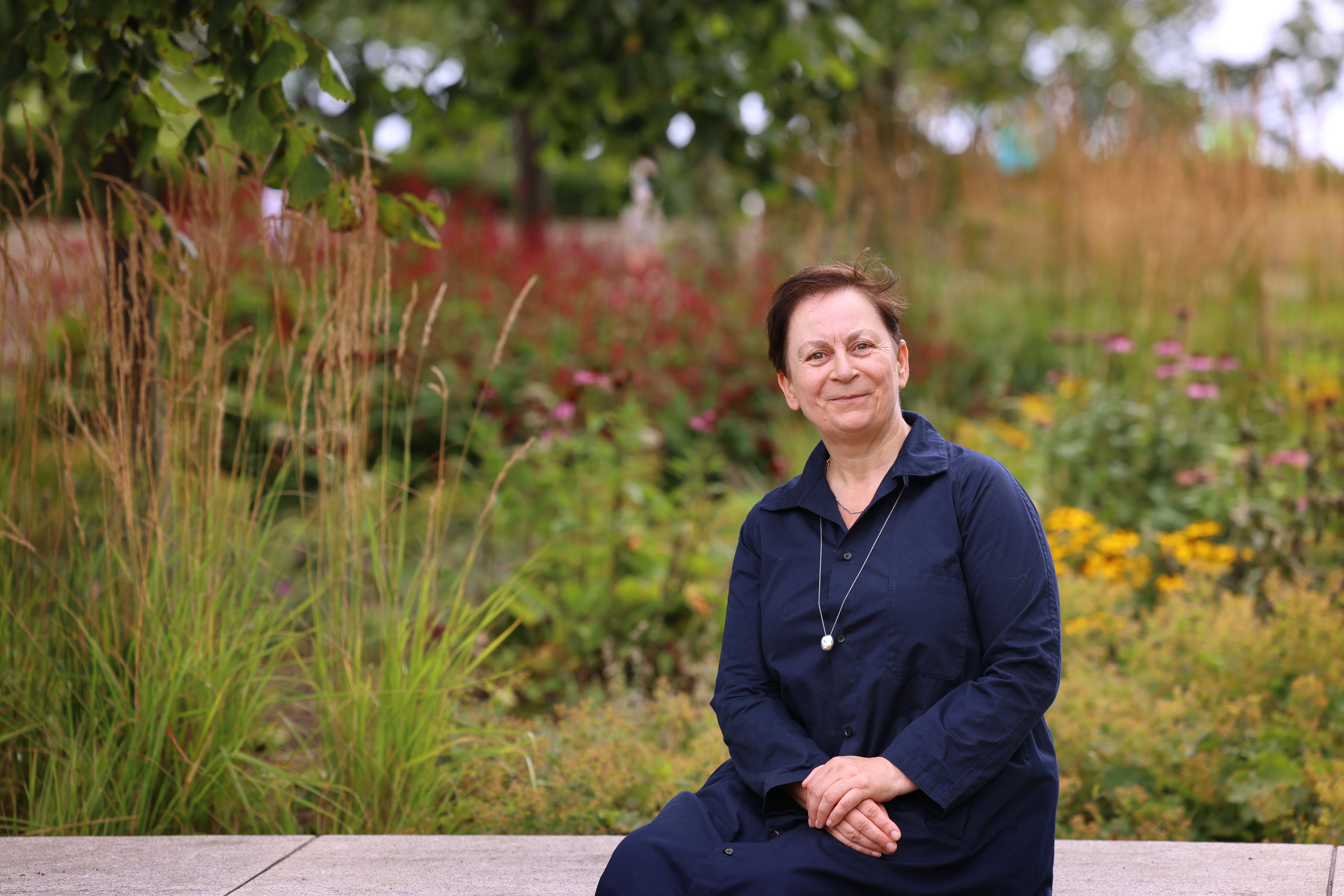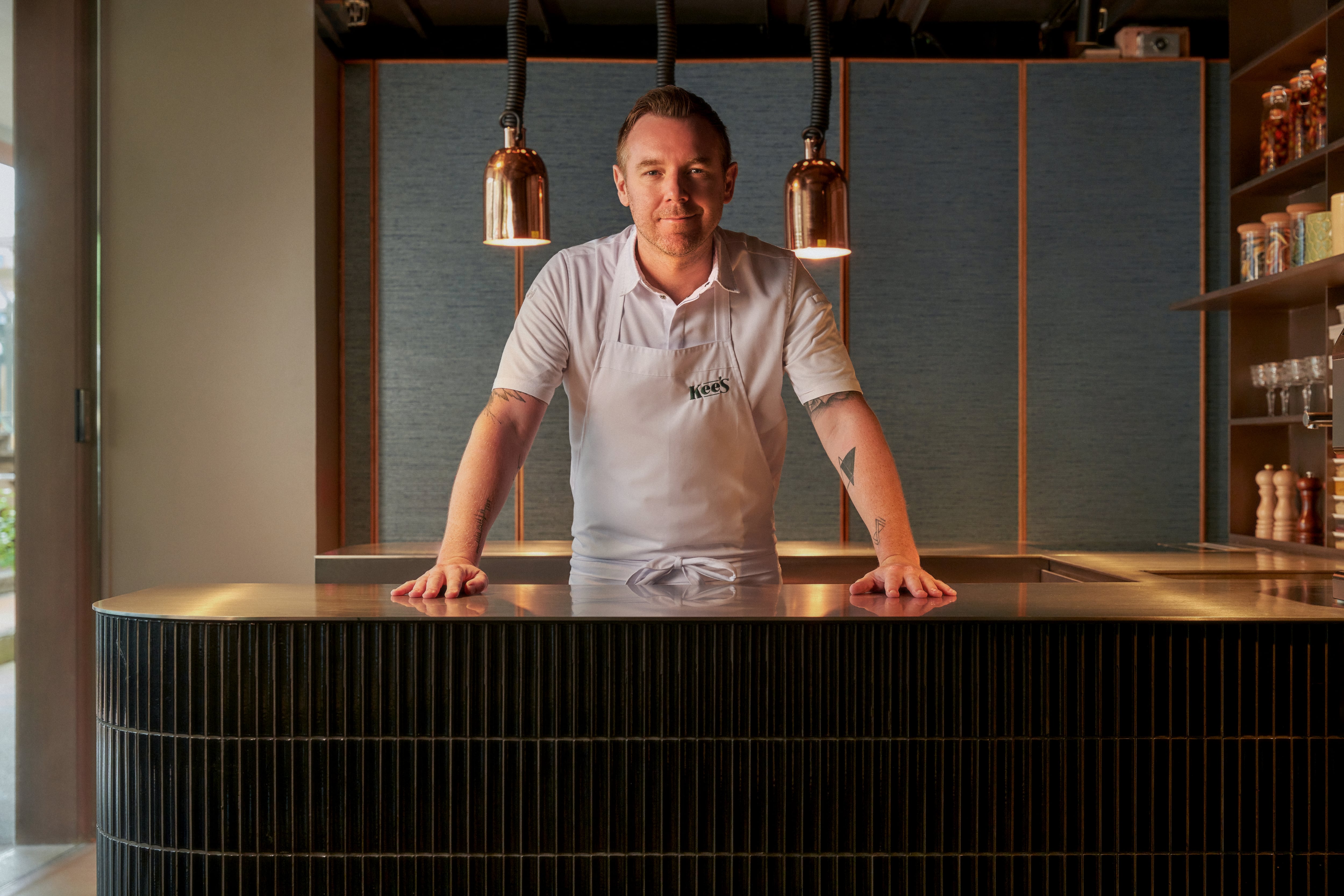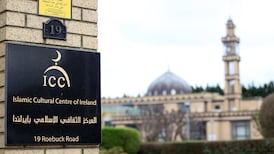Irish grammar
Sir, – Peter Elst’s (Letters, November 5th) letter concerning the Irish language inadvertently highlights one of the greatest obstacles to the revival of the language. His correction of Michael Deasy’s spelling of cúpla focal brings the unnecessary complexity of modern Irish grammar into focus.
Very few speakers speak grammatically and fewer still can write an error free letter in Irish, without recourse to Google translate or some other grammar checker.
A good start in simplifying the grammar would be to follow the example of Bulgarian and eliminate cases in the noun.
Lenition (an séimhiú, eg mo chapall) and eclipsis (an t-urú, eg ar an gcapall) could also be dispensed with in the noun and the adjective. This would make the language far more accessible, without damaging its essence.
READ MORE
Perhaps our new president could lead a campaign to simplify and modernise the grammar of the Irish language. – Yours, etc,
EOIN O’LEARY,
Mulhussey,
Maynooth.
Orange Order and King Charles praying with Pope Leo
Sir, – The Orange Order’s complaint to King Charles after he prayed with Pope Leo in Rome (“Orange Order complains to King Charles over Pope Leo prayer”, Home News, November 7th) is disappointing to see. We should be able to move well beyond the religious politics of the late 1700s, 1800s and 1900s.
It is worth remembering that the organisation itself takes its name from William of Orange, a man who had a constructive and at times supportive relationship with the pope of his day. William had family connections that also reached deep into Catholic Europe.
History is never as neat or simple as some would like to claim.
As someone who grew up with both traditions, I know that the Catholic Church and the Anglican Church are much closer to each other than Anglicanism is to the other main Christian Churches such as the Methodist or Presbyterian traditions. This is even more obvious within the High Church tradition in Anglicanism, where the liturgy, sacramental life, vestments and overall form of worship are remarkably similar to Catholic practice.
Anyone who has attended an Anglican service and a Catholic Mass will see at once how much they share. If some of the voices criticising King Charles took a little time to understand their own faith more fully, they might be surprised by how much common ground actually exists.
Rev Kyle Paisley has also criticised King Charles for praying with Pope Leo, which to me only underlines how little value some people are willing to place on simple gestures of respect between faiths. In truth, prayer is not a threat to anyone’s tradition. It is one of the few things that should bring people together rather than drive them apart.
In a world filled with division and conflict, it is sad to see anyone criticised for praying with another religious leader. We should be looking for every possible opportunity to bring people together and to find shared ground, rather than highlighting differences and divisions that only serve those who benefit from keeping people apart.
As it says in the scriptures: “How good and pleasant it is when God’s people live together in unity.” (Psalm 133:1). – Yours, etc,
JOHN O’NEILL,
Whitefriar Street,
Dublin 8.
Poppy refuseniks
Sir, – Following on from helpful letters from John Bergin and Evan Byrne (Letters, November 6th) about wearing or not wearing red poppies (or green poppies, sometimes worn to remember Irish volunteers in both world wars) maybe the following quote might help?
When folks were having a go at a Wrexham AFC winger a few years ago, after he declined to wear a poppy, an organisation which came into being in 1921 said this:
“At the Royal British Legion we believe that discrimination, hatred and abusive behaviour in any form have no place in our society, and should not be tolerated. The poppy is a universal symbol that represents sacrifices made in the defence of freedom, and so the decision to wear it must be a matter of personal choice. To insist that people wear a poppy would be contrary to everything that it stands for. We offer our full support to James McClean for exercising his right to choose not to wear a poppy.”
As an ordinary Brit, who has lost family members in both world wars, and who has enjoyed trips to Ireland over the years, I concur entirely. ‘Tis a time for remembrance, not point scoring. Maybe just leave the young lad alone? – Yours, etc,
PETER ROBINSON,
Preston,
Lancashire, UK.
Sir, – My grandfather served in the British Army from 1912 to 1922. With distinction. While he was Scottish he moved to Limerick, married and lived his life there, he didn’t talk about the horrors on the Western front, However I would like to think that wearing a Green Poppy would meet his approval. A quiet hero! – Yours, etc,
JOHN MORRISON,
Watergrasshill,
Co Cork.
Sir, – I too had family in the first World War, and have stood beside the lonely graves of Irishmen all along the Western front, in Gallipoli, and in Greece, where the Irish 10th Division served after Gallipoli.
The question of the poppy is simple. Follow the money. The Royal British Legion is a charity which raises funds through poppy sales to provide practical help to former and serving British military members and their families.
At this point, there are no first World War veterans left, and a very small number from the second World War. Their work is focused on veterans of more recent deployments, and current military members and their families. So the infamous Soldier F and his ilk would be assisted if they asked. That answers the question for me pretty clearly.
If one wants to recognise the sacrifice of Irish soldiers in British Forces in the world wars, I suggest a donation to the Commonwealth Graves Commission, who do an outstanding job tending the graves of thousands of Irish men around the world. – Yours, etc,
FRANK NEENAN,
Tullow Road,
Carlow.
Simple Menus
Sir, – I was working in Minsk, Belarus in early 1990 and the region was suffering economically from the effects of the collapsing Soviet Union and environmentally from the contamination from the Chernobyl nuclear explosion.
Our hotel restaurant had an extensive menu but only two items were ever available: ‘Chicken Kiev’ (without garlic) and ‘Beefsteak’ (actual meat unknown). Yet, every evening our waiter insisted on taking us through the unavailable options. When we asked the point of this ritual, he replied that he was trying to keep his job in difficult times. – Yours, etc,
THEO J SCHULTET,
Cambridge,
UK.
Sir, – The recent correspondence regarding menus reminds me of a story that Paul Merton told during a show a few years ago.
The comedian was filming with a crew in rural Ireland and at the end of the day they decided to find a restaurant. On approaching a crossroads they noticed two signs for restaurants but they were in opposite directions.
They noticed a farmer in a field and they inquired as to which might be the better option.
His laconic reply was, “gentlemen the way it is whichever one you decide on you’ll be sorry you didn’t go to the other”, – Yours, etc,
FERGUS MADDEN,
Goatstown,
Dublin 14.
Sir, – Many years ago on a business trip to Cyprus while ordering dinner in my hotel restaurant I inquired what sauce might be served with my steak the waiter replied ... “gravy ... brown gravy”. – Yours, etc,
DAVID EARLE,
Monkstown,
Co Dublin.
Taoiseach’s comments in Belém
Sir, – Fine words and lofty rhetoric from the Taoiseach in Belém (“Taoiseach criticises low turnout at Cop30″, Home News, November 7th). Could he now please listen to United Nations secretary general Gutterres – time for “implementation, implementation, implementation”. – Yours, etc,
ANNE BYRNE,
Blessington,
Co Wicklow.
Sir, – Does Micheál Martin think world leaders take him seriously when talking about climate change. We are laggards of Europe when it comes to proactive climate measures and are currently looking for a derogation on nitrate usage so we can continue to poison our own waters. What a fine example that is to the rest of the world. – Yours, etc,
TONY HAMILL,
Stillorgan,
Co Dublin.
Bird flu and boiled eggs
Sir, – Several articles this week in your newspaper relating to avian flu state that eggs are safe to eat “when cooked thoroughly”. As my spoon hovered over my soft boiled egg this morning, I double checked the Food Safety Authority website as to what that means for my morning egg.
It quotes the WHO advice to cook the yolk, as well as the white, to a solid state in avian flu affected areas. My bread ‘soldiers’ will have to retire to barracks until the reveille is sounded. – Yours, etc,
DAVID LOUGHLIN,
Rathmines,
Dublin 6.
Ferriter on Sr Stan
Sir, – Diarmaid Ferriter’s tribute to Sr Stanislaus Kennedy (“Sr Stan’s ‘Where can I go?’ question is as urgent as ever”, Opinion, November 7th) is hopefully a prompt for all of us, comfortable, well housed, but oblivious to the scandal of homelessness and poverty in our country today.
Aside from the fact that the religious get very little thanks or recognition for their work for the poor, the current reality is a poor reflection on all of us and our so-called Christian ethos.
How much longer can we wallow in excess while some around us, (but not near us, if we live in certain places,) are suffering poverty and homelessness.
Those who shout loudest get what they want from the State. We saw this in the recent budget.
Poor people can’t shout. They have no platform, no PR, and their only lobbyists are the religious and groups like Vincent de Paul and Focus Ireland.
Social justice is the responsibility of all of us, but we seem to have conveniently forgotten that. – Yours, etc,
Sheila Deegan,
St John’s Wood,
Dublin 3.
Most unpopular French president ever
Sir, – Emmanuel Macron is indeed unpopular – undeservedly so in my view – according to polls. However, Sharon Gaffney’s indication (“Why does Brigitte Macron inspire such vitriol in France?”, Opinion, November 7th) that “approval ratings for Emmanuel Macron have dropped to record lows” is a little wide of the mark: Macron’s unpopularity is surpassed by that of his predecessor and erstwhile boss, François Hollande, who retains the particular ‘record’ of most unpopular president of the 5th republic. – Yours, etc,
IAN THOMPSON,
Le Moulin Neuf,
Lélex,
France.
Fate of RTÉ Documentary unit
Sir, – As a former TV producer and commissioning editor David McKenna (Letters, November 7th) is well placed to challenge RTÉ management’s spin that the closure of the documentary unit is merely an extension of the broadcaster’s long history of collaboration with commercial production companies.
The complete closure of the unit is a significant departure and flies in the face of RTÉ’s stated commitments in assorted policy statements and commitments.
In its statement, “Purpose, Mission and Values” RTÉ declares that its purpose is to serve as an independent source of stories, news, information and entertainment for Ireland, reflecting the diversity of its people and providing experiences that enrich the lives of all.
RTÉ’s stated aim is to be “courageous” in its creativity, innovation and ambition.
The RTÉ Culture Charter commits the organisation to “innovation, growth, and long term success” and to cultivating “a resilient, dynamic culture that welcomes change, encourages creativity, and supports perseverance through challenges”.
These commitments are consistent with RTÉ’s obligations under the Broadcasting Act and the principles which underpin public service broadcasting.
RTÉ insists that everything will be all right because documentaries will continue to be broadcast, created by the commercial sector, under the direction of commissioning editors while resources are redirected to new projects.
The nurturing of talent, courageous creativity and the opportunity to develop ideas have always been a core function of public service broadcasting.
The commercial sector makes an important contribution to the media landscape but it’s core reason for existence is generation of profit, with all the limitations that places on editorial and production resources.
The nurturing of a creative culture will be undermined by this outsourcing programme which limits professional development and significantly reduces career opportunities in RTÉ.
The development of the commercial broadcasting sector should not be at the expense of public service broadcasting.
In seeking to comply with Government demands for transformation, RTÉ must resist the temptation to abandon activities which have helped make it a public service broadcaster of quality and editorial excellence. – Yours, etc,
SÉAMUS DOOLEY,
Irish Secretary,
National Union of Journalists (NUJ),
Spencer House.








